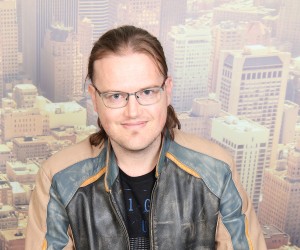Many in the matric class of 2018 are currently weighing up their options for the future. With the country’s high unemployment rate casting a shadow on their opportunities, these future jobseekers have been encouraged to look into which skills are required by the market, tailoring their occupational training to align with demand and thereby improving their chances of finding a job. However, with rapid innovation and development in the field of artificial intelligence (AI), all careers - including high-demand professions like engineers, teachers and electricians - will look significantly different in the years to come.
This is according to Vian Chinner - a South African innovator, data scientist and CEO of the machine learning company specialising in consumer behaviour prediction, Xineoh - who highlights that the third wave of internet connectivity, whereby our physical world begins to merge with that of the internet, is upon us. “This is evident in how widespread AI is being implemented across industries as well as in our homes with the use of automation solutions and bots like Siri, Google Assistant, Alexa and Microsoft's Cortana. So much data is collected from the physical world every day and AI makes sense of it all,” he says.
Chinner explains that not only do new industries related to technology like AI open new career paths, such as those specialising in data science, but it will also modify those which already exist.
So, what should matriculants be considering when deciding which route to take?
For highly academic individuals who are exceptionally strong in mathematics, Chinner says that data science is definitely the way to go.
He adds that there is, and will continue to be, massive demand internationally as well as locally, with Element-AI noting that there are only between 0 and 100 data scientists in South Africa, with the true number being closer to 0.
In terms of getting a foot in the door to become a successful data scientist, Chinner advises that practical experience, working with an AI-focused business, is essential. “I’d suggest either getting an internship while you are studying or going straight into an internship, learning on the job and taking specialist online courses from institutions like Stanford University and MIT as you go.”
He highlights that this career path is limited to the highly academic, mathematically gifted but that the technology is inevitably going to overlap with all other professions and so, those who are looking to begin their careers should take note of which skills will be in demand in future versus which will be made redundant by AI.
“In the next few years, technicians who are able to install and maintain new technology will be highly sought after. On the other hand, many entry level jobs will likely be taken care of by AI – from the slicing and dicing currently done by assistant chefs, to the laying of bricks by labourers in the building sector.”
“As a rule, I’d say that students should be looking at the skills required for the job one step up from an entry level position and working towards developing these. Those training to be a journalist, for instance, should work towards the skill level of an editor and a bookkeeping trainee to the role of financial consultant,” Chinner explains.
He adds that this also means that new workforce entrants should be prepared to walk into a more demanding role, with more responsibility, than perhaps previously anticipated and that the country’s education and training system should adapt to the shift in required skills.
“The matric class of 2018 have completed their schooling in the information age, we should be equipping them, and future generations, for the future market and AI is central to this,” Chinner concludes.
For more information, please visit: https://www.xineoh.com/.






